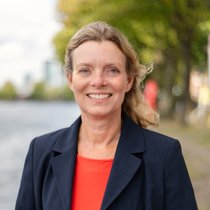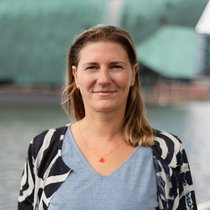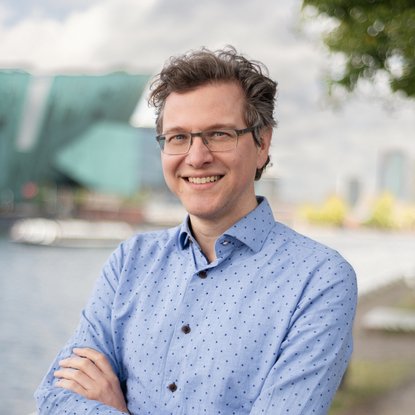Exciting news: the transition to a circular and zero-emission built environment receives a significant boost. On February 24th, 2023, the National Growth Fund commission approved an extensive program proposal that more than 130 partners submitted under the banner of TKI Bouw en Techniek. With the program, the partners aim to give an impulse to the realization of sustainable economic growth and a transition within the infrastructure sector, working on emission-free, circular, and climate-proof solutions. The commission allocates €100 million to the program.
A reliable infrastructure is a precondition for any city to function properly. Cities face many challenges in keeping their civil infrastructure up and running. These are significant challenges due to maintenance requirements, the necessity of climate adaptation and the reduction of carbon and material footprints. Industry, government and knowledge partners need to innovate together in order to realize true sustainable economic growth.
“There is no time to waste, we need to innovate, learn and execute at the same time.”
Zwanet van Lubek
Managing Director
Innovating in the regular maintenance cycle
To realize these complex tasks, AMS Institute will work closely together with over 130 partners, combining technical and social innovations. The key is to innovate together with public asset owners in their regular maintenance tasks. In practice, this means that the consortium will use up to 10% of the daily replacement and renovation projects to jointly test and monitor innovations – on streets, bridges and quay walls in public space. The Municipality of Amsterdam and the Province of North Holland are stepping forward to take up this challenge, joined by frontrunners in science and industry with the aim to scale up both nationally and internationally.
On the technical side, we will develop solutions for data-based maintenance, lifetime extension and future-proof replacement of civil infrastructure. Social innovations revolve around adopting flexible ways of learning while working and building a collective culture of trust based on mutual collaboration.
“With the approval of this proposal, we can accelerate the transition initiated in the infrastructure sector. As AMS Institute, we contribute to new technologies, research, and design methods that will provide solutions to make our assets as future-proof as possible.”
Maike Simmes
Strategic Programs & Institute Secretary
Urban Living Labs
To develop novel ways of working and scale them up in practice, the consortium adopts several different methods. These include the AMS approach to Urban Living Labs and the Startup booster.
- Urban Living Labs provide a co-innovative setting in which multiple stakeholders jointly test, develop and create metropolitan solutions. This way, metropolitan solutions will be adopted more smoothly and swiftly by all stakeholders involved. Living labs are a great method when solving complex multi-stakeholder challenges on a large scale, such as in this program.
- The AMS Institute Startup Booster is an early-stage startup incubator created for students, researchers, and young entrepreneurs who develop solutions for urban challenges. The Startup Booster gives unusual suspects with new ideas about sustainable urban infrastructure a platform. At the same time, it’s a method to accelerate innovation within the infrastructure sector.
Interdisciplinary consortium
Partners in this collaboration include the Municipality of Amsterdam, the Province of North Holland and Rijkswaterstaat (in their role as public asset owners), TU Delft, Wageningen University & Research, Vrije Universiteit Amsterdam and other knowledge institutes together with leading engineering firms and contractors, (SME) companies, and startups.
Various partners from the 'Future-proof living environment' consortium


